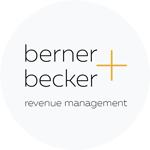Quick Guide for Revenue Management System (RMS) Selection
Revenue Management Systems (RMS) have become an indispensable component of modern hotel operations, offering the ability to dynamically optimise pricing, forecast demand, and ultimately maximise revenue. As of 2021, approximately 28% of hotels globally were utilising RMS tools, although comprehensive solutions remain underutilised, with earlier figures from 2019 suggesting only 12.3% adoption excluding in-house systems from major chains. Yet, while their advantages are clear, selecting the right RMS is critical and nuanced—requiring careful attention to functionality, integration with the broader tech stack, and a clear understanding of where human expertise remains irreplaceable.
Why Every Hotel Needs a RMS
At its core, a robust RMS provides:
- Dynamic Pricing & Restriction Management: Automated adjustments based on real-time data and market conditions.
- Enhanced Forecasting: Accurate demand prediction enables strategic decisions.
- Group Evaluations: Improved decision-making in regards to groups business and displacement impact on transient business.
- Improved Efficiency: Reducing manual labor in pricing and inventory management.
However, not all systems are created equal, and the decision to implement an RMS should always align with broader strategic objectives.
Selecting the Right RMS: Key Considerations
1. Functionality and Customisation:
Different hotels require different RMS functionalities:
- Resorts and Luxury Hotels: Need comprehensive forecasting that accounts for longer stays, ancillary revenues (such as spas, restaurants, and events), and varied guest segments.
- Business Hotels and City Properties: Require agile pricing strategies, real-time competitor rate tracking, and advanced segmentation tools.
- Boutique and Independent Hotels: Benefit from intuitive, user-friendly interfaces and easy-to-interpret reporting, reducing complexity and cost.
2. Integration with Your Tech Stack:
A RMS doesn’t function in isolation. It must seamlessly integrate with your existing Property Management System (PMS), in the best case also your Channel Manager or Central Reservation System (CRS), and additionally (if required/existent) your Customer Relationship Management (CRM) and Upselling tools. Certainly only a fraction of RMS’s out there cover the whole spectrum of integration capabilities and only few of them actually take those additional systems into consideration for pricing activities. Incompatibility or integration complexity can quickly erode the anticipated benefits.
Key integration checks:
- Data accuracy and real-time synchronization with PMS and distribution channels.
- Scalable API infrastructure for future technological expansion.
- Robust reporting capabilities that align with your existing analytics framework or augment it.
3. Clear Goals and Strategic Alignment:
Be explicit about the objectives behind adopting an RMS. Whether it’s revenue optimisation, efficiency gains, or competitive positioning, clarity ensures appropriate system selection:
- Prioritize systems that excel in areas aligned directly with your strategic goals, f.e. higher pricing accuracy and sophistication.
- Avoid “feature overload” that increases complexity without adding tangible value.
4. Understanding Where Human Expertise is Essential:
Despite advanced automation, human oversight is vital:
- Strategic Pricing Decisions: Human insight remains critical for interpreting data nuances and market context beyond algorithmic capabilities.
- Exceptional Situations Management: Humans are essential in scenarios such as sudden market shifts, unforeseen events, or complex group bookings.
- Guest Experience Considerations: Balancing revenue optimisation with maintaining brand integrity and guest satisfaction requires human judgment.
- Planning Promotional Activities: While a RMS helps identifying trough periods quickly, it doesn’t necessarily do something about. Human expertise is required to build actions that mitigate risk and execute a plan to actively work on this.
- and more…
Avoiding Common Pitfalls
- Ignoring Implementation and Training: Even the best RMS can fail without proper user training and operational adjustments.
- Underestimating Ongoing Support Needs: Evaluate vendor support quality, responsiveness, and availability carefully.
- Lacking a Comprehensive Technology Vision: Adopting an RMS without aligning it within a broader digital transformation strategy diminishes its impact.
Conclusion
Implementing an RMS is more than just a technological upgrade—it’s a strategic decision that should align with a hotel’s broader business goals and operational realities. By carefully selecting a system tailored to hotel type, ensuring robust integration, and maintaining a critical role for human expertise, hotels can truly harness the full potential of revenue management systems to drive profitability and competitive advantage.
At berner+becker, we have been and are constantly working on making sure our client hotels profit from the exact right RMS for a hotel, with deep hands-on expertise of most of the major RMS players in the European landscape. Simply contact us for a talk around your questions on RMS selection!




